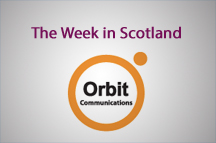 Red, White and The Union sings the Blues
Red, White and The Union sings the Blues
For the first time, the rest of the UK got a flavour of the debate that Public Affairs professionals in Scotland have been all too aware of since 2011, as the Scottish Government published their White Paper on Scottish Independence, “Scotland’s Future: Your guide to an independent Scotland”. As our Blog on Tuesday commented, at a whopping 670 pages, no-one can accuse the “Yes” campaign of skimping on content. The document covers the process of negotiations with Westminster, the date of independence were the electorate to vote in favour, the current state of Scotland’s balance sheet and the foundation of the SNP manifesto for the 2016 Scottish Parliament elections including proposals on social policy such as childcare.
But, what of the potential result and its implications? The first thing to be said is that the result is far from certain. The most recent poll for the Sunday Times showed a 9% lead for those opposing independence, with 15% still undecided. A lead is still a lead, and Better Together won’t be too worried just yet, but should the polls move even slightly, those undecided, but leaning “Yes”, could believe victory is possible and firm up their position. The race will certainly be a lot tighter than some expect.
At Orbit Communications, our advice is that no matter what the result, there are likely to be significant changes to politics in Scotland. In the event of a “Yes” vote, all policy areas become the domain of a newly independent Scottish Government, giving companies the chance to lobby for a more favourable regulatory environment than perhaps they are seeing in the rest of the UK.
Equally, were there to be a “No” vote, it is still likely additional powers will be devolved to prevent the spectre of a further referendum. Surprisingly, there is broad consensus amongst the four main parties as to what these might be, including:
- Environmental taxes such as Landfill, Air Passenger Duty, Vehicle Excise Duty
- Powers for Councils with implications for public services, businesses taxes, local taxes and procurement.
- Land taxes with implications for building and major infrastructure projects
- Crown Estate with implications for offshore renewables and related energy projects
Equal Marriage
Although the Scottish Parliament is sometimes criticised for the quality of debates, sometimes MSPs from all parties show themselves as principled representatives with greater powers of oratory than perhaps they are given credit for.
The contribution by the Leader of the Scottish Conservatives during the debate of the Marriage & Civil Partnership Bill drew praise from those of all political hues and on all sides of the argument. For Ruth Davidson MSP, the first openly gay leader of a mainstream political party in the UK, this was also a politically brave move when you consider that the vast majority of her party subsequently voted against the Bill.
High Growth Sectors
Finally, this week one of our clients, Edinburgh Technopole, a science park in Midlothian, welcomed Enterprise Minister, Fergus Ewing MSP, for a visit and announced a new tenant. Technopole is part of a UK-Wide network of science parks called BEST Network. It’s inspiring and exciting working closely with the technology, science and agri-science businesses that will provide the platform for the future economic success of Scotland and the rest of the UK so if your business is in this sector and active in Scotland then please get in touch.
Graeme Downie, Director, Orbit Communications.












